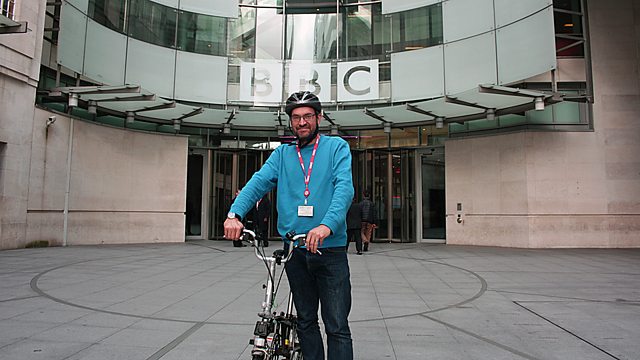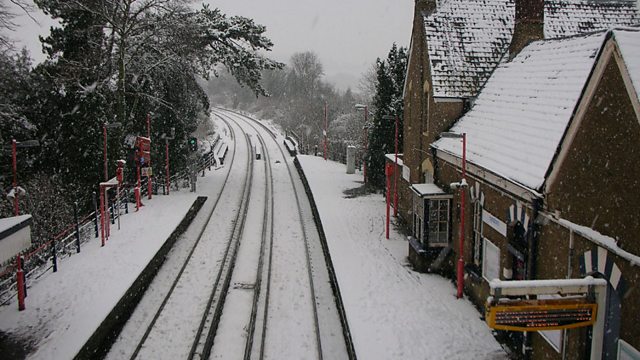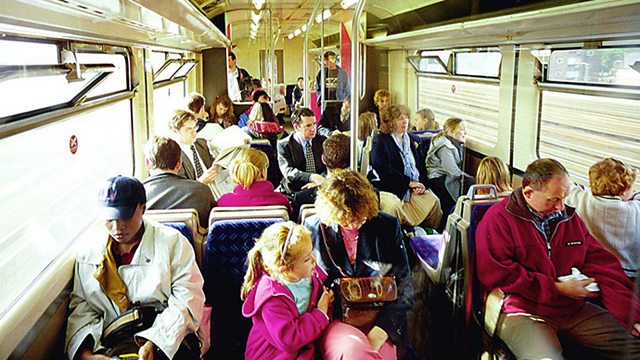Unit 4: The daily grind
Adverbs of frequency
Select a unit
- 1 Nice to meet you!
- 2 What to wear
- 3 Like this, like that
- 4 The daily grind
- 5 Christmas every day
- 6 Great achievers
- 7 The Titanic
- 8 Travel
- 9 The big wedding
- 10 Sunny's job hunt
- 11 The bucket list
- 12 Moving and migration
- 13 Welcome to BBC Broadcasting House
- 14 New Year, New Project
- 15 From Handel to Hendrix
- 16 What's the weather like?
- 17 The Digital Revolution
- 18 A detective story
- 19 A place to live
- 20 The Cult of Celebrity
- 21 Welcome to your new job
- 22 Beyond the planets
- 23 Great expectations!
- 24 Eco-tourism
- 25 Moving house
- 26 It must be love
- 27 Job hunting success... and failure
- 28 Speeding into the future
- 29 Lost arts
- 30 Tales of survival
Session 4
Rob is a producer here at BBC Learning English. He likes his job, but he spends a lot of his day travelling. Read his blog to find out why he does it.
Activity 1
Rob's commute
Hi, I’m Rob. We've been studying adverbs of frequency in this unit. We use these to talk about what we do every day. I've written a blog about my daily trip from the countryside to the city. I hope you like it!

Read the text and complete the activity
Like millions of people all over the world, five days a week I commute, that means I make a regular journey from home to my office in the big city. Maybe you do too? It's something that we have to learn to live with, if we want to go to work and earn some money.

My commute starts here - when it's not snowing!
The word 'commuter' comes from the early days of rail travel in US cities such as New York, Philadelphia, Boston and Chicago back in the 1840s. As the railways developed, people went to live outside cities, and when they travelled into the city to work, they paid a cheaper or 'commuted' fare.
Now, the daily commute can be on foot, by bike, by bus, by car or - like me - on the train. I live about 20 miles outside London - that's just over 32 km. I have a 1-mile walk to the station, a 50-minute train ride and another 1-mile bike ride to the office. I spend a lot of my day travelling - so why do I do it?
Well, firstly, living in central London and near the office is too expensive for me. And do I really want to live next door to work anyway?! Secondly, I decided to move out of London to live somewhere that I believe is good for family life. Commuting was difficult at first, but seven years later, I quite like it – it can be relaxing! On my twice-daily train journey I usually read a newspaper, I often listen to the radio and I sometimes have a little sleep.

My train to work
These days, I suppose I’m a typical commuter: I often catch the same time train and I always stand in the exact same place on the platform. I want to change my habits. And my aim is to try and cycle the 20 miles to work to save money and keep fit. The problem is, I can never decide when to start!
These days, many companies prefer people to work at home. It saves office space and workers usually like it – they don’t waste time commuting to and from the office. The only problem is that people sometimes miss the friendship of their work colleagues. Is this something you do and enjoy?

Inside a busy commuter train
Another benefit of home working is that it reduces the overcrowding on public transport. During the rush hour in London, many commuter trains are full because everyone is travelling to work at the same time. Luckily for me, I always get a seat on my train.
Anyway, for now, commuting is here to stay. As my train speeds towards London, it's good to know that millions of other people around the world are doing the same thing.
So that’s all about me and my journey to work. What about you? Are you a commuter? Why not tell us about your experiences of travelling to work, school or university? I’d love to know:
- Do you have to suffer ‘the daily grind’ – that long and tiring journey to work?
- Or do you have a relaxing 5-minute walk?
- What is commuting like in your country?
- What is your daily routine like?
Join us on Facebook and Twitter to practice using adverbs of frequency and the vocabulary from this unit - see you there!
Next
We've heard all about Rob's long journey to work, but that's nothing compared to the 'extreme commuting' you'll hear about in this week's News Report.
Session Vocabulary
fare
the money you pay to travel on a train, bus, taxi etc.typical
usual, normalplatform
the place where people stand when they are waiting for a traincolleagues
people who you work with